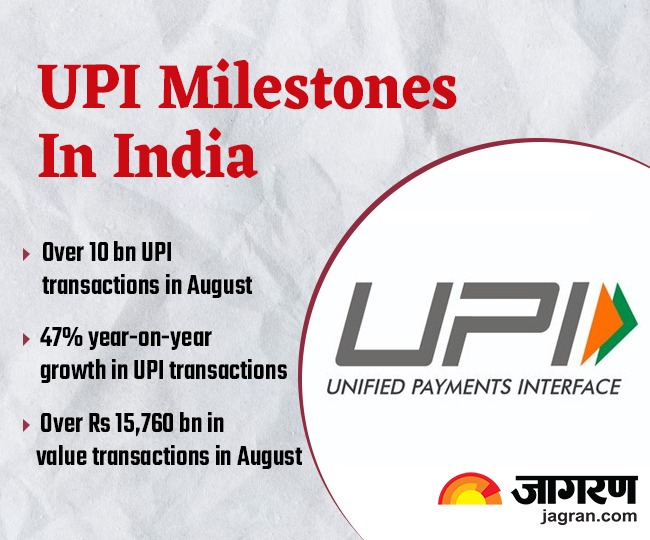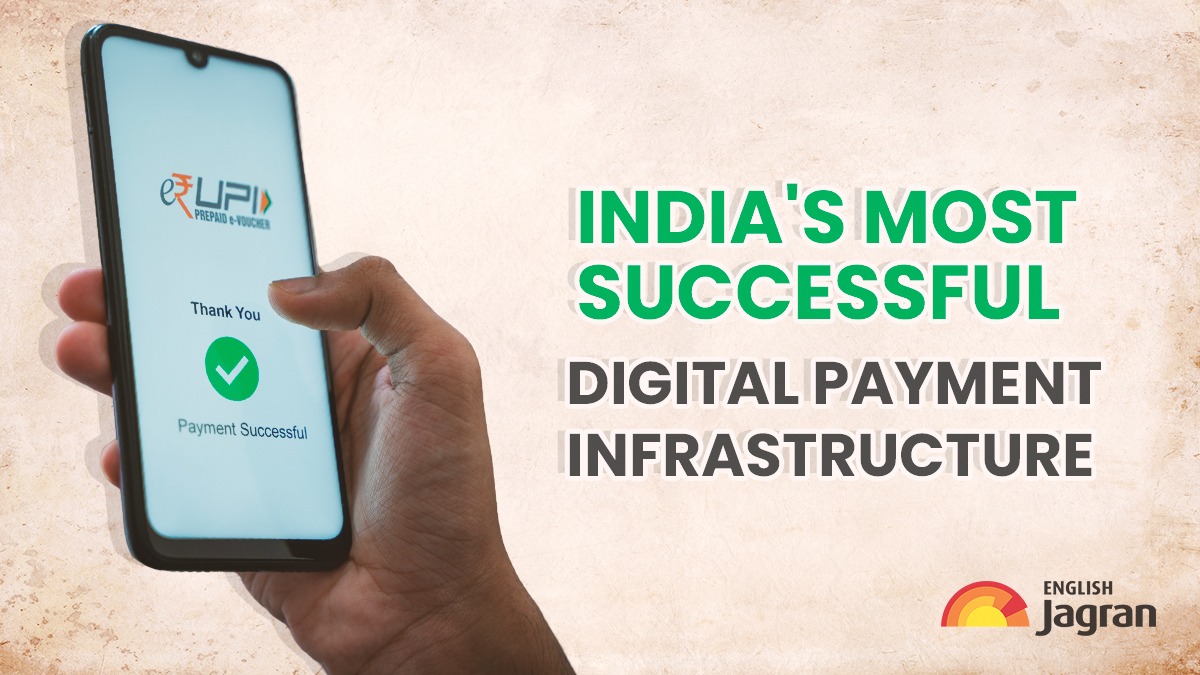- By Vaamanaa Sethi
- Thu, 07 Sep 2023 03:15 PM (IST)
- Source:JND
India’s one innovation that has grabbed the global headlines is definitely Unified Payments Interface (UPI) payments system. From street vendors to shopping malls, UPI has not gained momentum in just India but is growing acceptance among various other countries as well.
Also read: Nazara Technologies Gets Board Approval To Raise Rs 410 Cr From SBI Mutual Fund
In August this year, India achieved a new milestone record by crossing 10 billion UPI transactions for over Rs 15,700 billion for the first time. A total of 10.58 billion UPI transactions were done in August, a 47 per cent year-on-year growth, clocking over Rs 15,760 billion (over $183 billion) in value, as per the data from the National Payments Corporation of India.

In fact, over the next five years, UPI is expected to constitute almost 90% of total transaction volume in retail digital payments by expanding its adoption to rural areas and tier 3 and 4 cities, according to the Indian Payment Handbook - 2022- 2027 report by PwC. The report further projects that UPI is likely to achieve 1 billion transactions per day by FY 2026–2027.
As India recorded this new milestone, over 35 countries now want to adopt India’s UPI digital payment technology to offer it to Indian visitors and expatriates abroad. Japan, France are among the nations that expressed interest in adopting UPI recently.
However, this is not it. PM Modi, earlier this year, said that ‘experts feel that India’s digital wallet transactions could soon overtake cash deals.
Story of UPI
The idea of UPI was conceived in 2012 when a group of bankers and industry experts came together to discuss the need for a payment system that would allow people to make digital transactions without the need for a mobile wallet.
The group was reportedly headed by Nandan Nilekani, who was the former CEO of Infosys and the chairman of the Unique Identification Authority of India (UIDAI), which developed Aadhaar, the largest biometric identification system in the world. A report rolled out by the group named as "Committee on Comprehensive Financial Services for Small Businesses and Low-Income Households," in 2013 suggested to form a digital payments organisation — National Payments Corporation of India (NPCI), who would be responsible for developing and operating a range of payment systems, including UPI.
In 2015, the NPCI rolled out the first version of UPI, which was developed in collaboration with the Reserve Bank of India (RBI) and major banks in the country.
UPI was launched as an open architecture platform, enabling banks to create their own applications and services that could seamlessly integrate with it. This approach empowered customers to execute transactions through a diverse range of apps, eliminating the necessity for a particular bank's application or a mobile wallet.
Nilekani was the mastermind behind bringing UPI in the world of digital payment infrastructure. He played an instrumental role in bringing together all the major banks in India to collaborate on the development of UPI.
Global expansion plans for UPI
The remarkable success of UPI in India has paved the way for its expansion on a global level. Notably, countries like France, Bhutan, Nepal, Oman, UAE, Vietnam, Singapore, Cambodia, Hong Kong, Taiwan, the United Kingdom, and Europe are now accepting UPI payments.
Attracted by India’s digital payment infrastructure, around 13 countries including Malaysia, Thailand, Philippines, South Korea, and Japan, expressed their intent to adopt UPI for their digital payment systems.
Earlier this year, a significant milestone was achieved when India's UPI system and Singapore's PayNow were linked, allowing users in both nations to effortlessly conduct cross-border transactions.
During a brief two-day visit to France, Prime Minister Narendra Modi announced that Indians could now access and utilize the UPI system even while standing atop the iconic Eiffel Tower.
During a prior visit to India by Germany's Federal Minister for Digital and Transport, Volker Wissing, made a small UPI transaction with a local vegetable vendor. This noteworthy moment was captured in a video and shared on the official social media platforms by the German Embassy in India.

